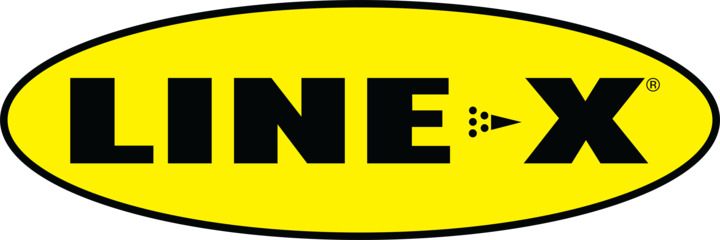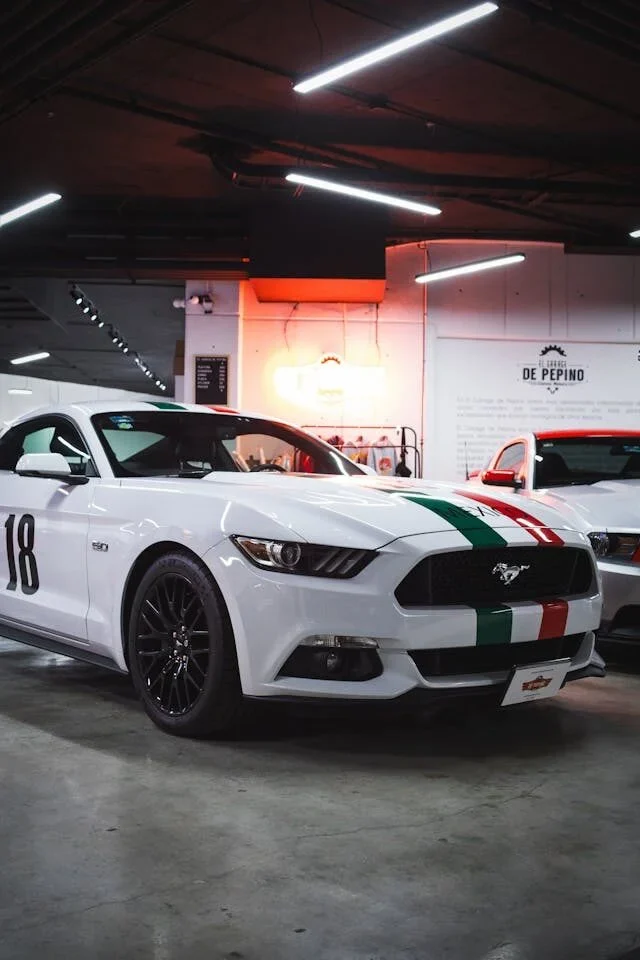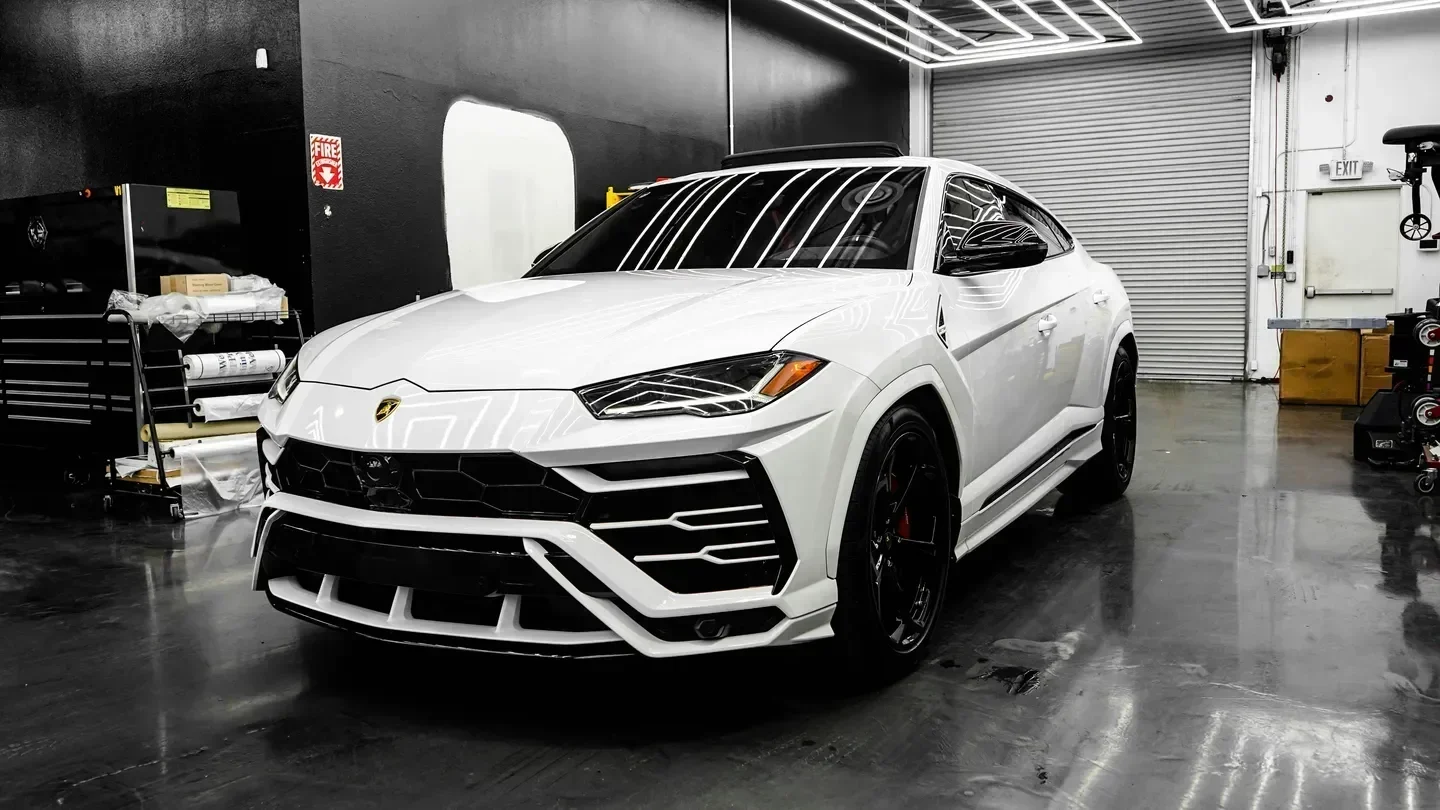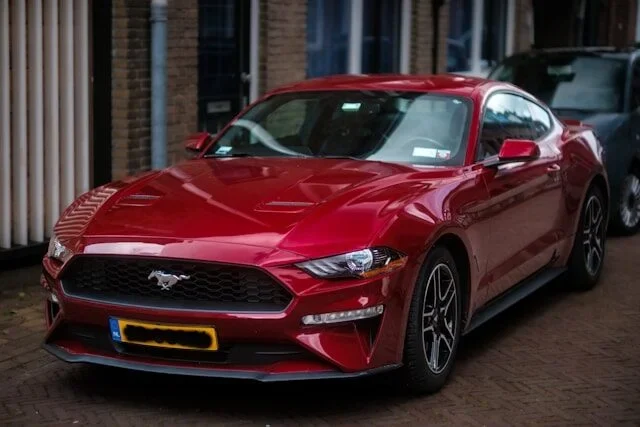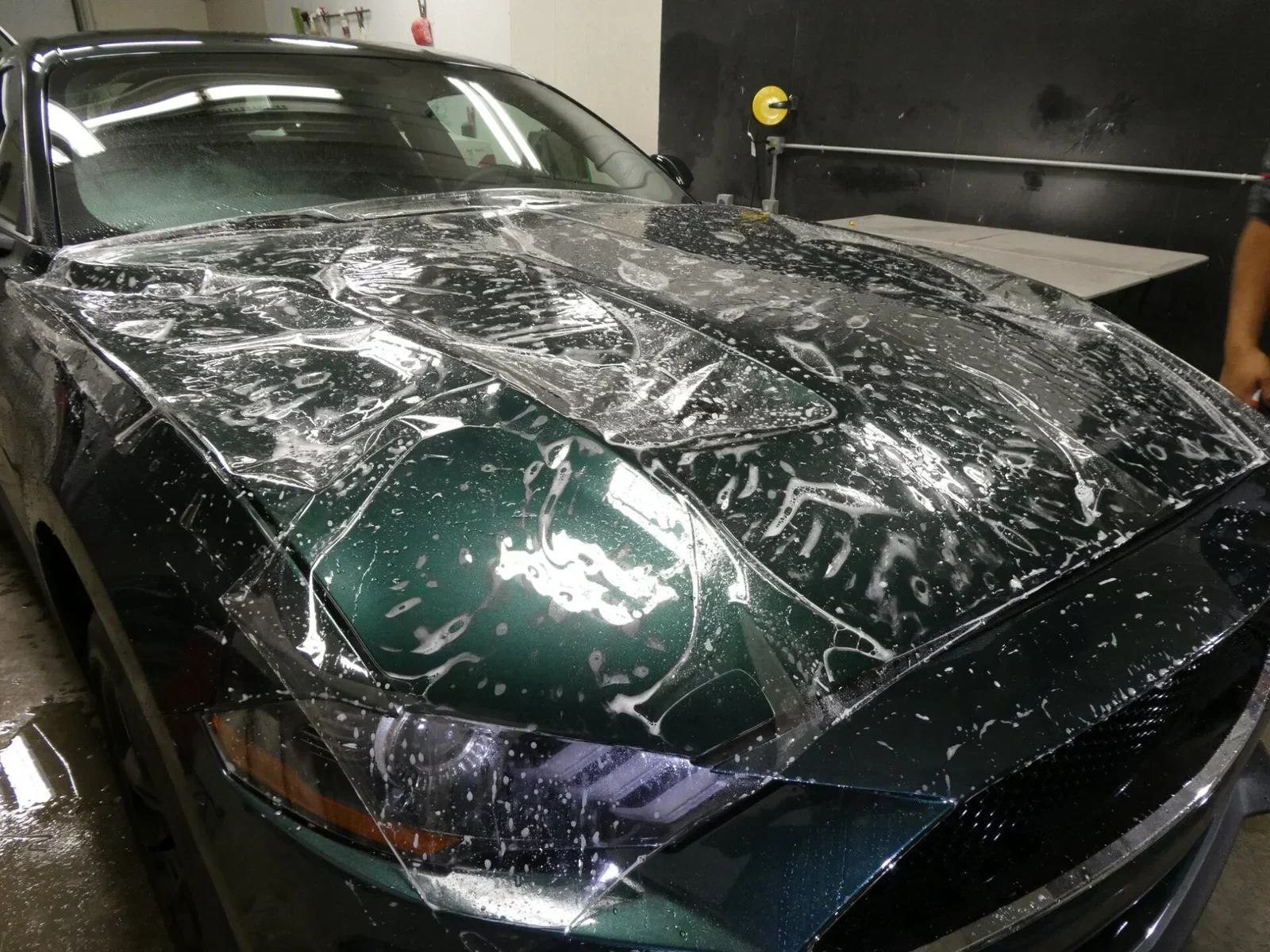Window tinting provides essential protection against Florida’s intense heat and UV radiation while enhancing privacy and vehicle aesthetics. However, the Sunshine State maintains strict regulations governing window tint darkness and reflectivity to ensure driver safety and law enforcement visibility.
Understanding Florida’s window tinting laws is crucial for vehicle owners to avoid costly violations while maximizing the benefits of professional tinting. This comprehensive guide covers current regulations, legal requirements, exemptions, and compliance strategies.
Understanding Florida Window Tint Regulations
Florida’s window tinting laws were enacted in 1991 and updated in 2015 to establish specific standards for vehicle window film applications. These regulations balance the benefits of window tinting with public safety requirements and law enforcement needs.
The state regulates window tint through Visible Light Transmission (VLT) percentages, which measure how much light passes through the tinted glass. Lower VLT percentages indicate darker tint that block more light. Florida’s laws distinguish between different vehicle types and window positions to accommodate varying safety requirements.
What is Visible Light Transmission (VLT)?
Visible Light Transmission (VLT) represents the percentage of light that travels through window film. A 70% VLT allows 70% of visible light to pass through while blocking 30%. Conversely, a 15% VLT blocks 85% of light, creating a much darker appearance.
Understanding VLT percentages is essential for compliance with Florida law. The state specifies minimum VLT requirements for each window position, ensuring adequate visibility while permitting beneficial light reduction.
Current Florida Window Tint Laws
Passenger Vehicle Requirements (Sedans, Coupes)
For sedans and coupes, Florida requires specific VLT minimums for each window position:
Windshield: Non-reflective tint is allowed above the manufacturer’s AS-1 line, typically the top 5-6 inches of the windshield.
Front Side Windows: Must maintain at least 28% VLT, allowing sufficient visibility for safe driving and law enforcement interaction.
Rear Side Windows: Must maintain at least 15% VLT, providing privacy while maintaining some visibility.
Rear Window: Must maintain at least 15% VLT, with dual side mirrors required when tinted.
Multi-Purpose Vehicle Requirements (SUVs, Vans, Trucks)
Multi-purpose vehicles receive different treatment under Florida law, recognizing their unique characteristics and usage patterns:
Windshield: Same as passenger vehicles – non-reflective tint above the AS-1 line only.
Front Side Windows: Must maintain at least 28% VLT, identical to passenger vehicles for safety consistency.
Rear Side Windows: Must maintain at least 6% VLT, allowing significantly darker tinting than passenger vehicles.
Rear Window: Must maintain at least 6% VLT, providing maximum privacy for cargo and passengers.
Window Tint Reflection Limits
Beyond darkness restrictions, Florida regulates window tint reflectivity to prevent glare that could distract other drivers. Reflective properties help reduce heat and glare but must remain within legal limits.
Reflection Standards for All Vehicles
Front side windows must not exceed 25% reflectivity, ensuring they don’t create dangerous glare for oncoming traffic or pedestrians.
Back side windows must not exceed 35% reflectivity, allowing slightly higher reflection for rear windows while maintaining safety standards.
These reflection limits apply uniformly to all vehicle types, unlike VLT requirements that vary between passenger and multi-purpose vehicles.
Medical Exemptions for Window Tinting
Qualifying Medical Conditions
Florida provides medical exemptions for persons afflicted with Lupus, autoimmune diseases, or other medical conditions requiring limited light exposure. These exemptions allow darker window tinting than standard legal limits.
Qualifying conditions include Lupus, Albinism, Total or Facial Vitiligo, Autoimmune Disorders, and other conditions requiring limited light exposure. Additional autoimmune diseases and light-sensitive conditions may qualify based on medical documentation.
Medical Exemption Application Process
Before installing a darker tint, you must obtain a medical exemption certificate costing $6.25 per vehicle. The certificate does not expire and cannot be transferred between vehicles.
Required Documentation:
- Application for sun screening medical exemption (Form HSMV 83390)
- Physician’s statement of certification from qualified medical professionals
- Licensed physicians under Chapters 458, 459, or 460, or physician assistants under chapters 458 or 459
Application Process:
- Obtain physician’s certification stating medical necessity for darker tint
- Complete Form HSMV 83390 with vehicle and medical information
- Submit application with $6.25 fee to Florida Department of Highway Safety and Motor Vehicles
- Receive medical exemption certificate for specific vehicle
- Install compliant tinting with qualified professional
Medical Exemption Certificate Requirements
Medical exemption certificates include vehicle description with make, model, year, VIN, medical exemption decal number, and registered owner’s name(s). Certificate holders must carry documentation while driving vehicles with exempt tinting.
The certificate becomes void upon vehicle sale or transfer, requiring new applications for replacement vehicles.
Law Enforcement Vehicle Exemptions
Qualified Exempt Vehicles
Florida exempts specific law enforcement and professional vehicles from standard tinting restrictions:
Law Enforcement: All undercover police and canine vehicles are automatically exempt from window tint laws.
Private Investigators: Vehicles owned and operated by private investigators and process servers are exempt from regulations.
Emergency Vehicles: Ambulances and other emergency response vehicles receive exemptions for operational requirements.
These exemptions recognize the unique operational needs of law enforcement and emergency services while maintaining public safety standards.
Additional Florida Window Tint Requirements
Mandatory Equipment and Identification
Dual side mirrors are required when rear windows are tinted, ensuring adequate visibility for safe driving when rear visibility is reduced.
Florida requires stickers identifying legal tinting on the inside of the driver’s side door jamb. These stickers confirm compliance and provide law enforcement with installation information.
Prohibited Tint Characteristics
Florida prohibits colored tint, requiring neutral-colored films that don’t alter natural light color. Colored tint can interfere with traffic signal visibility and emergency vehicle lighting recognition.
Tint manufacturers are not required to certify their products in Florida, making consumer responsibility for legal compliance essential.
Penalties and Enforcement
Violation Consequences
Illegal window tint constitutes a non moving violation requiring a court date and fine. First-time violations can result in fines up to $116, with repeat offenses carrying higher penalties.
Enforcement Actions:
- Traffic citations requiring court appearance
- Mandatory tint removal for non-compliant installations
- Fix-it tickets requiring compliance proof
- Vehicle inspection failures during registration renewal
Law Enforcement Testing
Law enforcement officers carry VLT meters to measure tint darkness and reflectivity. These devices provide accurate measurements for violation determination and court evidence.
Officers may use tint meters during traffic stops to verify compliance with Florida law, making proper installation and documentation essential for avoiding penalties.
Benefits of Legal Window Tinting in Florida
Heat and UV Protection
Window tinting blocks up to 99% of UV rays while reducing car interior temperatures by 60%. This protection prevents interior fading and cracking while improving comfort during Florida’s intense summer heat.
Professional window tinting reduces air conditioning load, improving fuel efficiency and extending HVAC system life. The energy savings often offset installation costs over time.
Privacy and Security Enhancement
Legal window tinting provides privacy for vehicle occupants and cargo while deterring theft by obscuring valuable items. Darker rear windows offer significant privacy benefits without compromising safety requirements.
Tinted windows also reduce glare during driving, improving visibility during bright conditions and reducing eye strain during long trips.
Property Protection
Quality window film protects vehicle interiors from UV damage that causes fading, cracking, and premature aging. Dashboard, seat, and trim protection maintains vehicle value and appearance over time.
Choosing Compliant Window Tint
Professional Installation Importance
Professional installation ensures compliance with Florida law while maximizing tint performance and longevity. Experienced installers understand current regulations and use compliant materials and techniques.
Quality installations include proper documentation, warranty coverage, and ongoing support for maintenance and compliance questions.
VLT Selection Guidelines
Front Windows: Choose 30-35% VLT for passenger vehicles to exceed minimum requirements while providing noticeable benefits. This range offers heat reduction and glare control without appearing excessively dark.
Rear Windows: Consider 15-20% VLT for passenger vehicles or 6-15% VLT for SUVs and trucks. Darker rear tint provide maximum privacy and heat rejection while maintaining legal compliance.
Quality Considerations: Invest in ceramic or premium films for superior heat rejection, color stability, and durability. Higher-quality films often provide better results at legal VLT levels than cheaper alternatives at darker percentages.
Cost Considerations and Value
Installation Investment
Basic tinting for sedans using standard film costs under $150, while premium ceramic tinting can reach $400 per vehicle. Investment levels depend on film quality, vehicle size, and installer expertise.
Premium films justify higher costs through superior performance, longer warranties, and better color stability. The investment pays dividends through energy savings, comfort improvement, and vehicle value protection.
Long-Term Value
Professional window tinting typically lasts 10-15 years with proper care, providing excellent return on investment through energy savings and interior protection. Quality installations maintain appearance and performance throughout their lifespan.
Vehicle resale value often increases with professional window tinting, as buyers appreciate the comfort and protection benefits while recognizing quality installations.
Maintenance and Compliance
Ongoing Care Requirements
Legal window tinting requires minimal maintenance beyond regular cleaning with appropriate products. Avoid ammonia-based cleaners that can damage film and use soft materials to prevent scratching.
Annual inspections help identify potential issues before they become compliance problems or require costly repairs.
Compliance Verification
Maintain documentation proving legal installation and compliance with Florida requirements. Keep receipts, warranty information, and VLT specifications readily available for law enforcement interactions.
Consider periodic VLT testing to verify continued compliance, especially for older installations that may experience slight darkening over time.
Regional Considerations in Florida
Climate Impact on Tinting Needs
South Florida’s intense year-round heat makes window tinting particularly valuable for comfort and energy efficiency. Northern Florida’s more moderate climate still benefits from UV protection and summer heat reduction.
Coastal areas face additional challenges from salt air and sand that can damage vehicle surfaces, making quality window film protection especially important.
County and Local Variations
Florida tinting laws may be interpreted differently in various counties or places of residence. Always verify local interpretations with DMV or law enforcement authorities to ensure complete compliance.
Some local jurisdictions may have additional requirements or enforcement priorities that affect practical compliance considerations.
Future of Florida Window Tint Laws
Technology Advancements
Modern window films provide superior performance at legal VLT levels compared to older technologies. Ceramic and spectrally selective films offer excellent heat rejection while maintaining required light transmission.
Advanced films may influence future regulation updates as technology demonstrates improved safety and performance characteristics.
Regulatory Trends
Florida’s current regulations balance safety requirements with consumer benefits, creating a stable legal framework for window tinting. Future changes will likely focus on emerging technologies rather than fundamental requirement modifications.
Professional Installation and Compliance
Selecting Qualified Installers
Choose installers with current Florida tinting law knowledge and compliance expertise. Verify business licensing, insurance coverage, and warranty offerings before committing to installation.
Request references and review previous work to ensure quality standards and customer satisfaction. Professional installers provide valuable guidance on film selection and legal compliance.
Installation Documentation
Maintain complete records of installation including film specifications, VLT measurements, warranty information, and compliance documentation. This information proves essential for law enforcement interactions and future service needs.
Quality installers provide comprehensive documentation and ongoing support for maintenance and compliance questions.
Conclusion
Florida’s window tinting laws provide clear guidelines for legal compliance while allowing vehicle owners to enjoy significant benefits from professional installations. Understanding current requirements, exemption processes, and enforcement procedures ensures trouble-free enjoyment of tinted windows.
The investment in legal, professional window tinting pays dividends through improved comfort, energy efficiency, and vehicle protection throughout Florida’s challenging climate. Proper selection and installation create lasting value while maintaining full legal compliance.
Stay informed about current regulations and work with qualified professionals to maximize window tinting benefits while avoiding costly violations. Legal compliance protects your investment while ensuring safety for all road users.
Remember that tinting laws and regulations may be interpreted differently in different counties, making local verification an important step in the compliance process. When in doubt, consult with local authorities or professional installers familiar with regional enforcement practices.
Make the most of your window tint by choosing expert installation that meets Florida’s legal standards. At LINE-X Auto Spa, we ensure your tint looks great, performs well, and stays fully compliant.
Contact us today for trusted advice, professional service, and peace of mind—on every drive.
